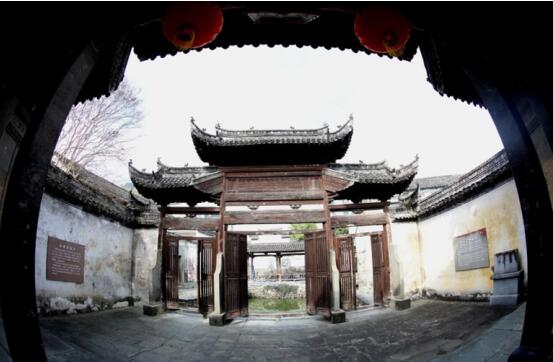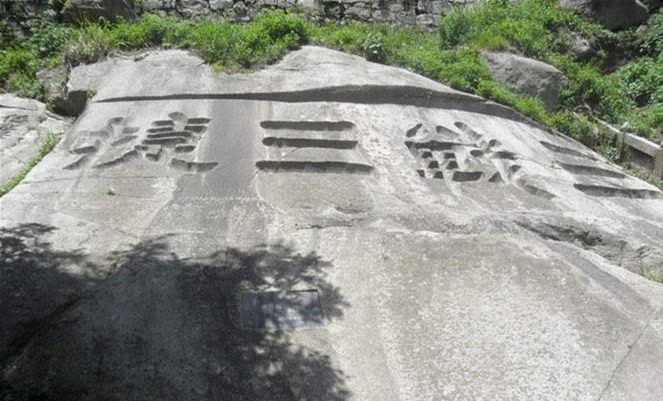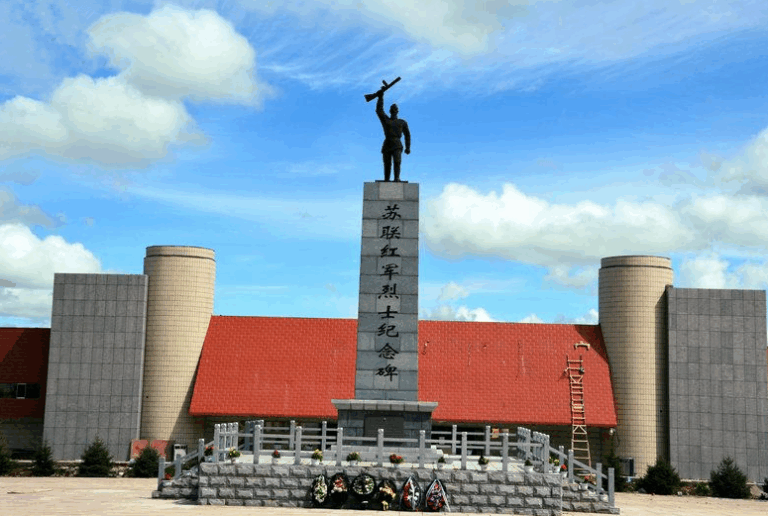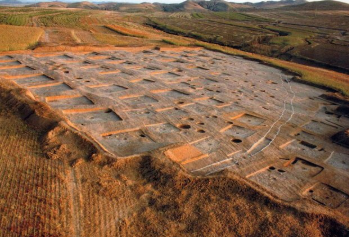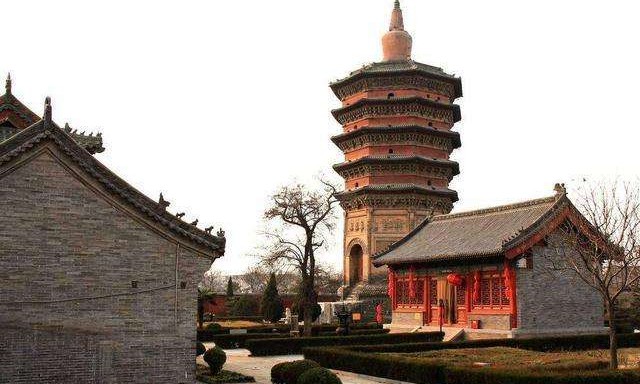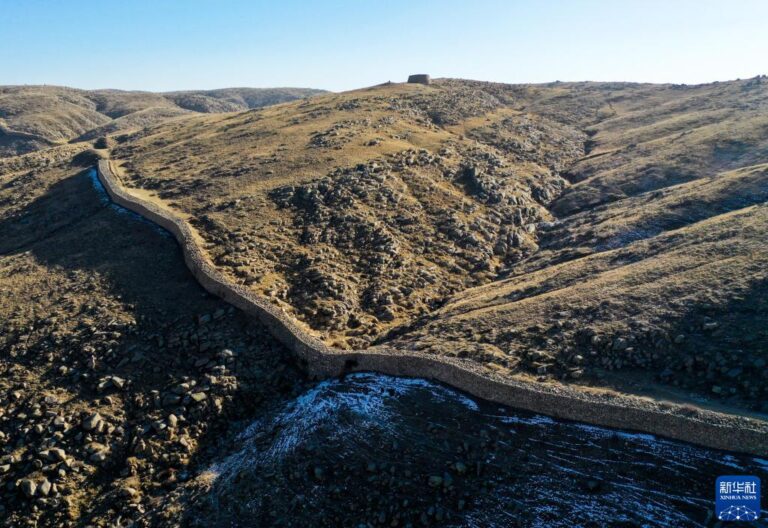Bozhou Gujinggong Jiu Niangzao Yizhi: Discover the Art of Traditional Chinese Brewing
An Essential Guide to Visiting Bozhou Gujinggong Jiu Niangzao Yizhi
In This Guide
- An Essential Guide to Visiting Bozhou Gujinggong Jiu Niangzao Yizhi
- The Rich History of Bozhou Gujinggong Jiu Niangzao Yizhi
- Main Highlights: What to See at Bozhou Gujinggong Jiu Niangzao Yizhi
- Planning Your Visit: A Practical Guide
- Tickets, Hours, and Booking
- How to Get There
- Local Cuisine and Accommodation
- Frequently Asked Questions
- Final Thoughts on Your Trip
Nestled in the heart of Bozhou, Anhui Province, the Gujinggong Jiu Niangzao Yizhi, or the Gujing Distillery Ruins, serves as a remarkable testament to China’s long-standing and rich tradition of liquor production. This historic site is not merely an archaeological treasure; it is a vibrant homage to the art of brewing that has flourished since the Han Dynasty. Often referred to as the birthplace of Gujinggong Jiu, a celebrated variety of Chinese liquor, the distillery ruins invite visitors to explore the intricate craftsmanship behind one of China’s most esteemed beverages.
Dating back to the Ming and Qing Dynasties, the Gujing distillery features a series of ancient fermentation pits made from a distinctive black clay known as “shen ni,” which is integral to the brewing process. These pits, shaped like inverted bowls, have been meticulously preserved, allowing us to glimpse the legacy of a brewing technique that has been honed over centuries. The unique microbial environment within these pits enhances the flavor profile of Gujinggong Jiu, making it a sought-after liquor both domestically and internationally.
The site not only showcases the traditional methods of production but also embodies the cultural significance of liquor in Chinese society, where it is often associated with hospitality, celebration, and artistry. Visitors to the Gujinggong Jiu Niangzao Yizhi can immerse themselves in the history of this cherished craft, gaining insight into its evolution and the important role it has played in the region’s cultural heritage.
As you step into this enchanting locale, prepare to embark on a journey through time, where ancient techniques and modern appreciation converge to celebrate the timeless allure of Gujinggong Jiu.
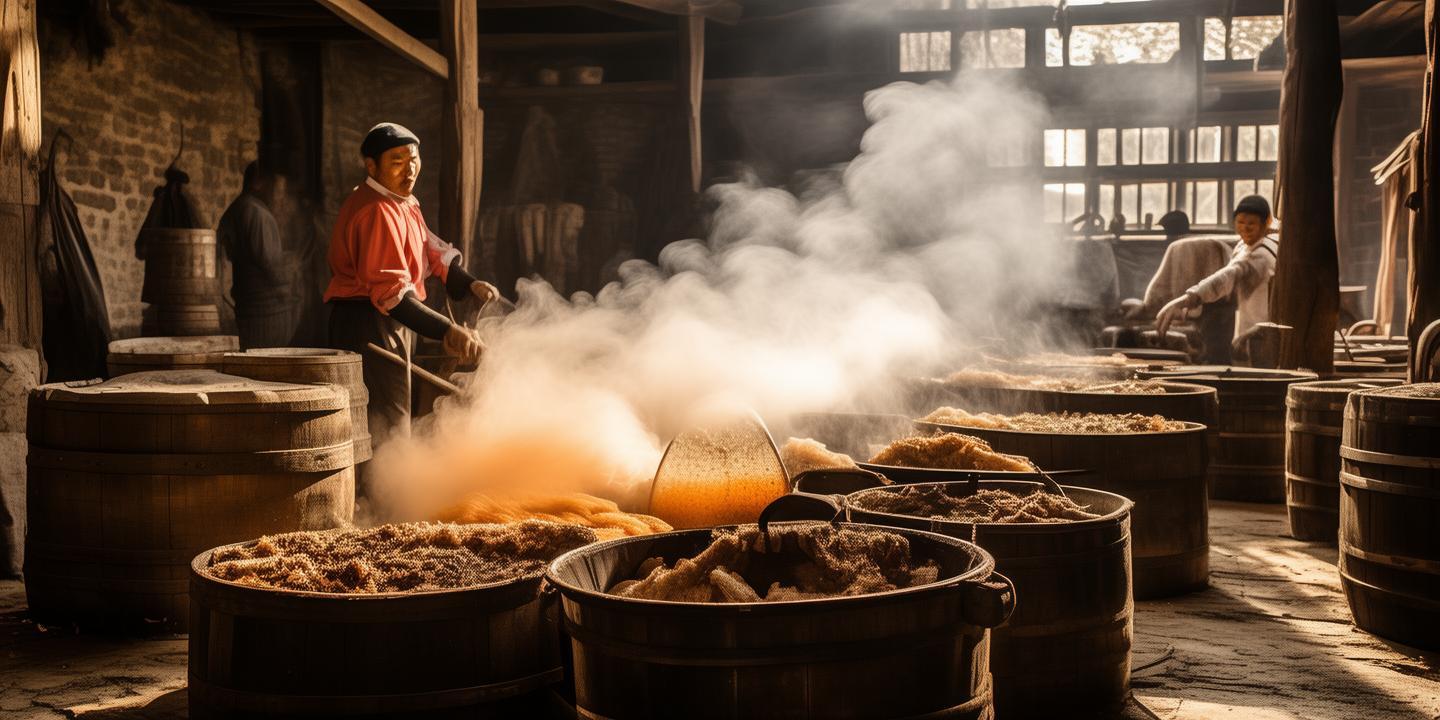
Bozhou Gujinggong Jiu Niangzao Yizhi.
The Rich History of Bozhou Gujinggong Jiu Niangzao Yizhi
The Bozhou Gujinggong Jiu Niangzao Yizhi, or the Gujinggong Distillery Remains, located in the city of Bozhou, Anhui Province, is an extraordinary testament to China’s rich history of liquor production. The site is primarily composed of ancient fermentation pits dating back to the Ming and Qing dynasties, along with remnants of brewing facilities that showcase the traditional methods of Chinese liquor making.
The origins of Gujinggong Jiu can be traced back to 196 AD during the Han Dynasty when the famous warlord Cao Cao presented his locally produced wine, known as “Jiu Yun Chun,” to Emperor Liu Xie. This moment is celebrated as the inception of what would eventually become known as Gujinggong Jiu, which is now recognized as one of China’s eight famous liquors. The brewing techniques and unique flavors of this rice-based spirit have earned it the nickname “the Peony of Liquor,” highlighting its esteemed status in Chinese culture.
By the Ming Dynasty, particularly in 1515, the establishment of the Gongxing Distillery marked a significant development in the region’s brewing industry. The distillery was renowned for its quality, and it set the foundation for what would evolve into the contemporary Gujinggong brand. The distilling process used at this site was facilitated by the ancient fermentation pits, which are known for their blackened, aromatic mud—referred to as “shen ni”—that has matured over centuries. This mud is essential for cultivating the unique bacterial cultures that give Gujinggong Jiu its distinctive flavor profile.
The site underwent various developments over the centuries, with significant expansions during the Qing Dynasty when it was recognized as a key producer of high-quality liquor. However, the modern distillery did not formally take shape until the late 1950s when the state-owned Gujing Distillery was established, evolving from the historical Gongxing Distillery. In 1959, it was officially named Gujinggong Jiu, solidifying its reputation as a national liquor brand.
Today, the Gujinggong Jiu Niangzao Yizhi serves not only as a heritage site reflecting the evolution of liquor production in China but also as part of the Gujing Wine Culture Museum. This museum, inaugurated in 1994, is recognized as one of the nation’s premier showcases of liquor culture, preserving the rich history and craftsmanship that has characterized Gujinggong Jiu for over two millennia. Visitors can explore the ancient pits and relics of traditional brewing practices while gaining insights into the artistry that has made Gujinggong Jiu a cornerstone of Chinese culinary heritage.
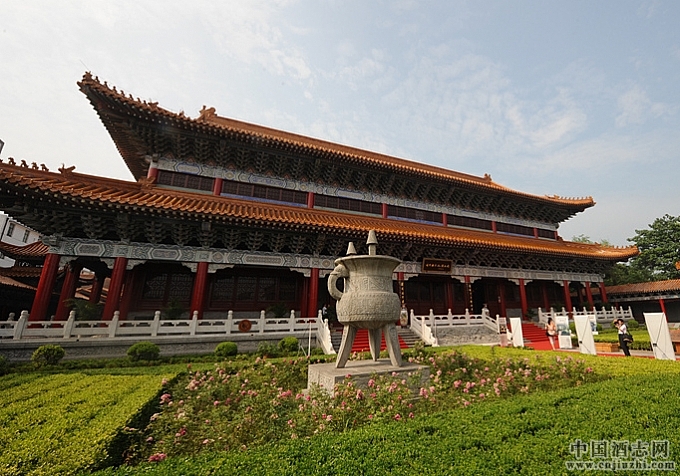
Bozhou Gujinggong Jiu Niangzao Yizhi.
In 2013, the site was designated as a national key cultural relic protection unit, affirming its significance in the preservation of Chinese history and culture. The ongoing efforts to maintain and celebrate this heritage ensure that the story of Gujinggong Jiu continues to be told for generations to come.
Main Highlights: What to See at Bozhou Gujinggong Jiu Niangzao Yizhi
Visiting the Bozhou Gujinggong Jiu Niangzao Yizhi (Gujinggong Liquor Brewing Site) is a journey into the rich heritage of Chinese liquor culture, particularly the famed Gujinggong wine. Here are some key highlights that make this site a must-see for travelers:
Historical Significance
The Gujinggong Brewing Site is recognized as a national cultural relic and serves as a living testament to the traditional brewing techniques that have been passed down through generations. Dating back to the Ming and Qing dynasties, the site showcases the historical evolution of liquor production, marking it as a significant cultural landmark in the region.
Unique Brewing Pits
At the heart of the site are the ancient brewing pits, known as “jiu ni,” which are crucial for the fermentation process of Gujinggong wine. These pits, characterized by their unique shape and composition, have nurtured the growth of essential yeasts and bacteria for centuries. The rich, black sediment found in these pits is known as “shen ni” and is essential for producing the distinct flavor profile of Gujinggong wine.
Architectural Marvels
The site features impressive ancient architecture, including the remains of traditional brewing workshops and storage facilities. These structures not only reflect the ingenuity of historical Chinese architecture but also serve as a backdrop to the brewing process. Visitors can explore the layout of the brewing facilities, which have been meticulously preserved to illustrate the methods of production used in the past.
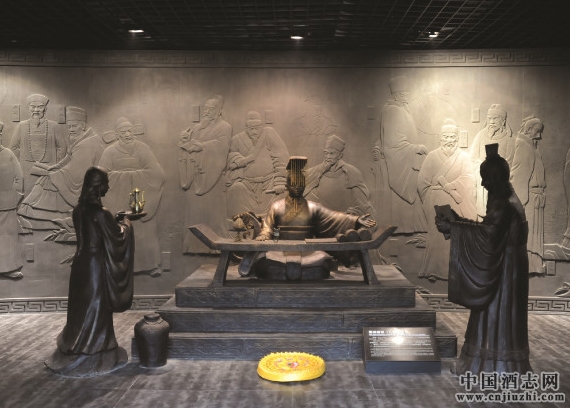
Bozhou Gujinggong Jiu Niangzao Yizhi.
Cultural Exhibits
Adjacent to the brewing site is the Gujinggong Wine Culture Museum, often hailed as the “first liquor museum in China.” This museum offers an extensive overview of the history and cultural significance of Gujinggong wine, featuring artifacts, ancient brewing tools, and educational displays that delve into the art of liquor production.
Tasting Experiences
For those looking to savor the flavors of Gujinggong wine, the site provides interactive tasting experiences. Visitors can sample a variety of wines, learning about the different styles and their unique characteristics. Expert guides share insights into the tasting notes and the art of pairing these wines with traditional Chinese cuisine.
Natural Beauty
The surroundings of the brewing site are equally captivating, with lush landscapes that enhance the cultural experience. Visitors can enjoy peaceful walks among the historical structures, taking in the serene ambiance that has inspired generations of brewers and connoisseurs alike.
Seasonal Festivals
Throughout the year, the site hosts various cultural festivals, including the annual “Peach Blossom Spring Festival,” where guests can participate in traditional activities, enjoy local delicacies, and witness folk performances. These events provide a deeper understanding of the local customs and the integral role of Gujinggong wine in the community.
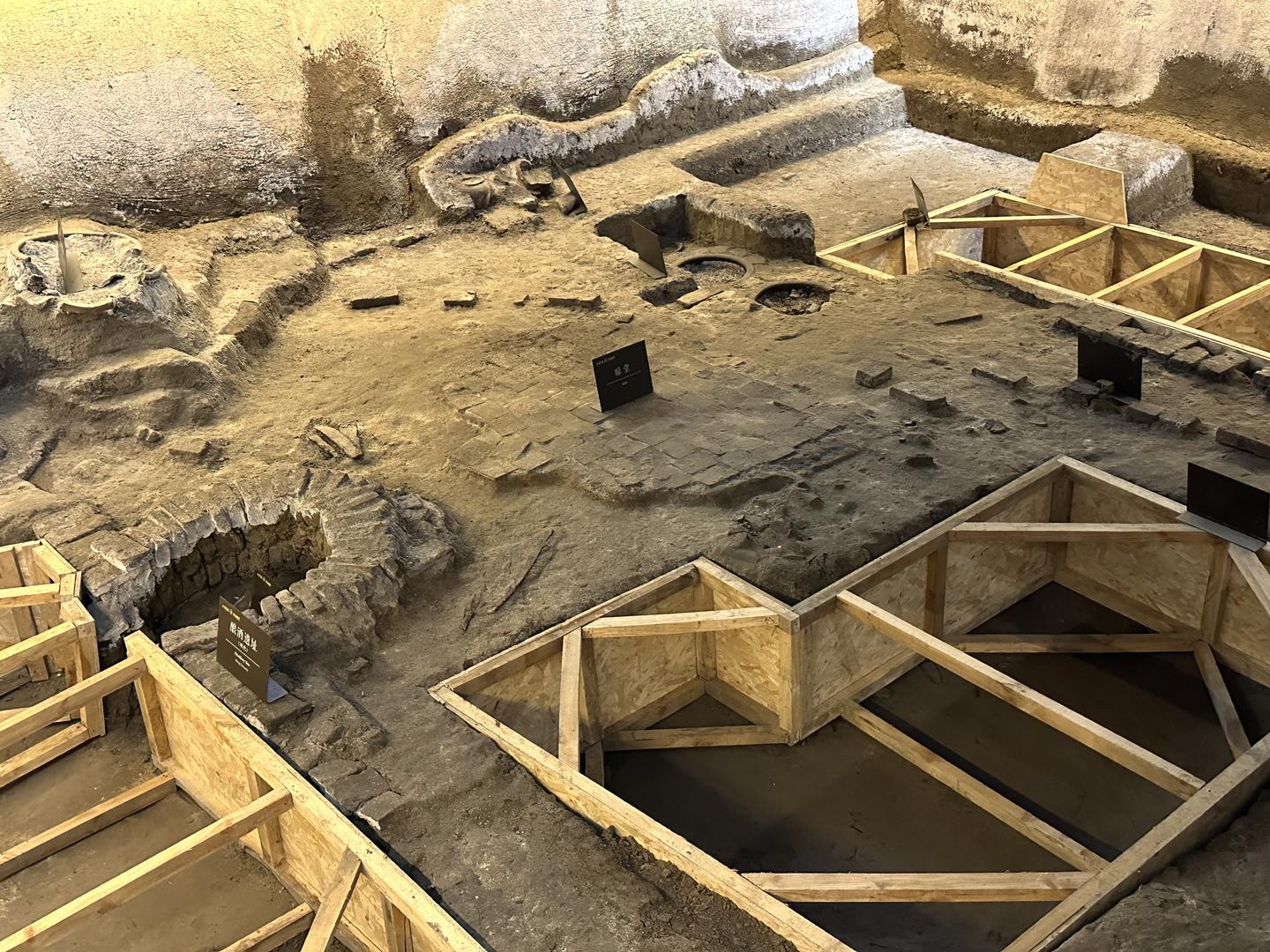
Bozhou Gujinggong Jiu Niangzao Yizhi.
In summary, the Bozhou Gujinggong Jiu Niangzao Yizhi is not only a site of historical and cultural importance but also a vibrant venue for experiencing the rich traditions of Chinese liquor craftsmanship. A visit here promises a blend of education, enjoyment, and a taste of history that is truly unforgettable.
Planning Your Visit: A Practical Guide
Practical Guide to Bozhou Gujinggong Jiu Niangzao Yizhi
Visiting the Bozhou Gujinggong Jiu Niangzao Yizhi (the Ancient Well Brewing Site) is an enriching experience that immerses you in the rich history and culture of Chinese liquor production. This guide offers essential information to enhance your visit.
Location and Access
The Ancient Well Brewing Site is located in Bozhou, Anhui Province, China. To reach the site, you can fly into the nearest major city, Hefei, and take a train or bus to Bozhou. The site is also accessible via local transportation, including taxis and ride-sharing services.
Coordinates: 33.8792° N, 115.7905° E
Opening Hours
The site is open to visitors from 8:00 AM to 5:00 PM daily. It is advisable to arrive early to fully explore the area and participate in any brewing demonstrations or guided tours.
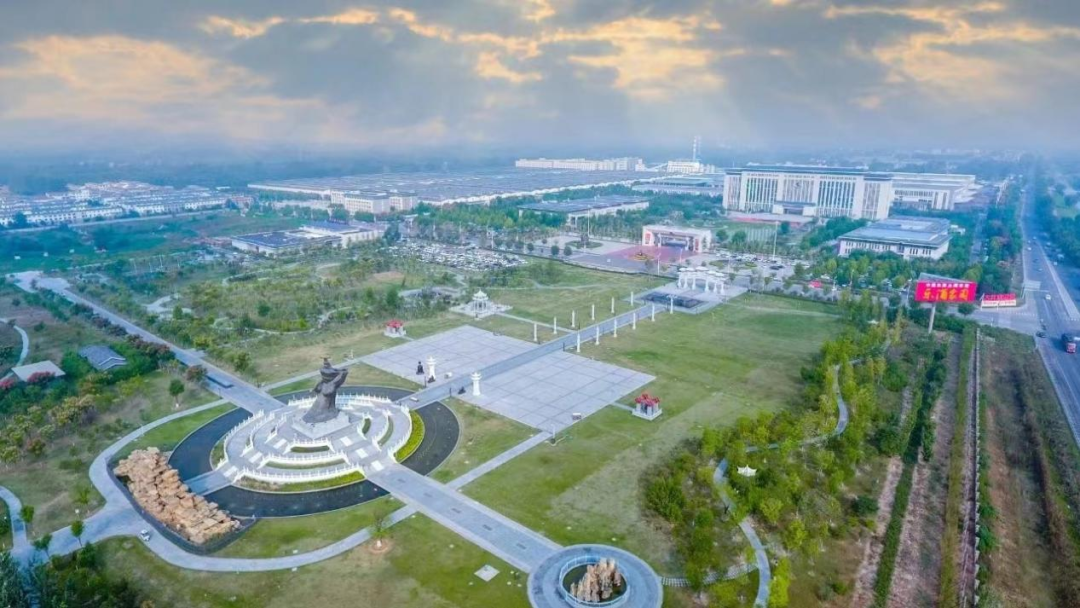
Bozhou Gujinggong Jiu Niangzao Yizhi.
Admission Fees
The entrance fee for the Ancient Well Brewing Site is 60 CNY per person. Discounts are available for children under 1.2 meters in height (free entry), and seniors over 65 years old, who can enter free of charge with valid identification. Children between 1.2 and 1.5 meters can purchase a discounted child ticket.
What to See and Do
-
Explore the Brewing Pits: The site features a series of ancient brewing pits that are crucial for the fermentation process of Gujinggong liquor. These pits have been used for centuries and their unique construction contributes to the distinct flavors of the liquor produced here.
-
Visit the Gujinggong Liquor Culture Museum: This museum showcases the history and cultural significance of Gujinggong liquor, often referred to as “the liquor of the people.” It is a perfect place to learn about the ancient brewing techniques and the evolution of Chinese liquor culture.
-
Participate in Interactive Brewing Experiences: Many programs allow visitors to engage in the brewing processes. Check the schedule for workshops where you can participate in traditional brewing methods.
-
Enjoy Scenic Views: The surrounding area is picturesque, with opportunities for photography and leisurely walks. Take a moment to appreciate the historical architecture and beautiful gardens that emphasize the region’s cultural heritage.
-
Sample Local Cuisine: Don’t miss the chance to enjoy traditional Anhui cuisine at nearby restaurants. Pair your meal with a glass of Gujinggong liquor for an authentic regional experience.
Nearby Attractions
-
Ancient Wells: Visit the two ancient wells that were used for brewing, dating back to the Song and Ming dynasties. These wells are not only historical artifacts but also sources of the pure water essential for brewing quality liquor.
-
Bozhou Ancient Town: A short distance from the brewing site, this ancient town offers a glimpse into traditional Chinese architecture and culture, including quaint shops and local markets.
-
Cultural Festivals: Depending on your visit timeframe, check for local festivals such as the Peach Blossom Spring Festival, which features traditional music, dance, and food, celebrating the region’s rich heritage.
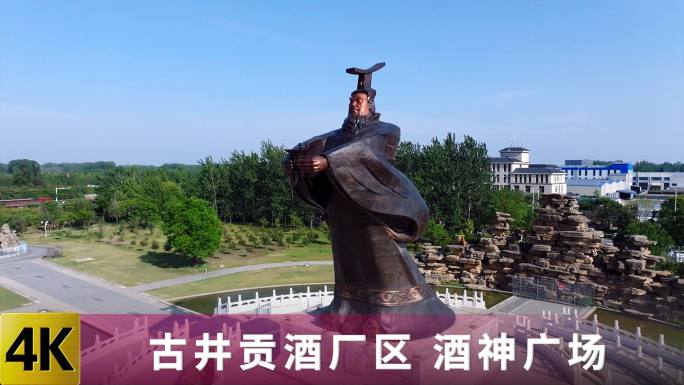
Bozhou Gujinggong Jiu Niangzao Yizhi.
Tips for Visitors
-
Dress Comfortably: Wear comfortable clothing and shoes, as you will be walking and possibly participating in hands-on activities.
-
Stay Hydrated: Bring water with you, especially during the warmer months, to ensure you remain hydrated during your explorations.
-
Respect Cultural Practices: When participating in brewing activities or visiting sacred sites, be mindful of local customs and practices.
-
Photography: While photography is encouraged, always check for specific restrictions, especially in museum areas.
Conclusion
A visit to the Bozhou Gujinggong Jiu Niangzao Yizhi offers a unique opportunity to immerse yourself in the traditions of Chinese liquor craftsmanship. With its rich history, interactive experiences, and stunning cultural sites, it is a must-visit destination for anyone interested in Chinese culture and history. Enjoy your exploration of this fascinating landmark!
Tickets, Hours, and Booking
Visiting the Bozhou Gujinggong Jiu Niangzao Yizhi (Ancient Gujing Distillery Site) is a fascinating opportunity to dive into the rich history of Chinese liquor production, particularly the renowned Gujinggong wine. Here’s what you need to know about tickets for your visit:
Ticket Information
- Admission Fee: The standard ticket price is ¥60 per person.
- Free Entry: Children under 1.2 meters in height can enter for free. Additionally, seniors aged 65 and above can also gain free admission upon presenting valid identification.
- Discounted Tickets: Children between 1.2 meters and 1.5 meters can purchase a children’s ticket at a reduced rate. Active military personnel can enjoy discounted entry by presenting appropriate identification.
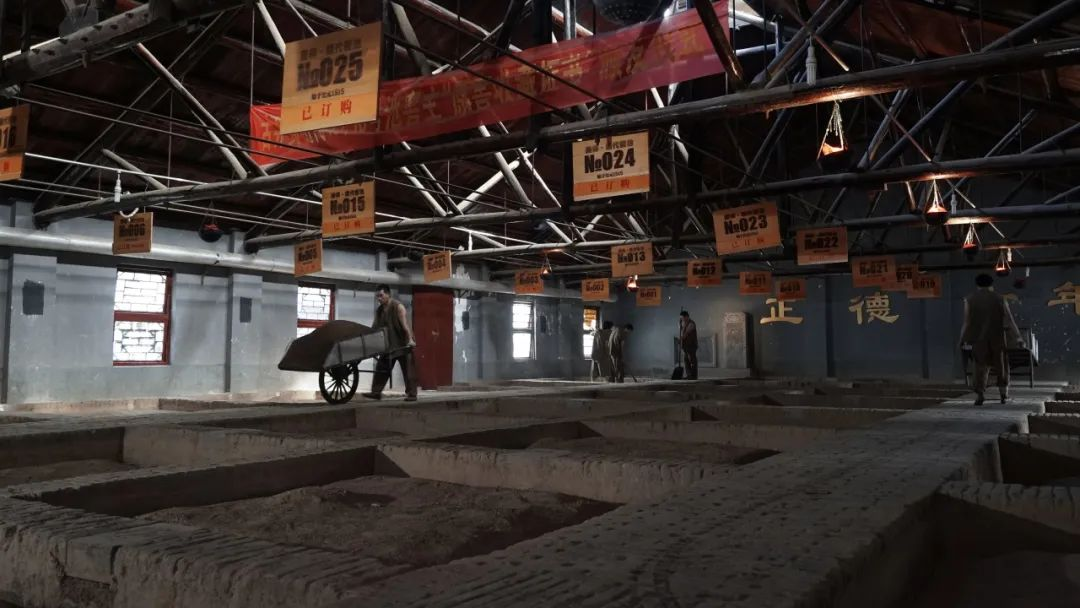
Bozhou Gujinggong Jiu Niangzao Yizhi.
Operating Hours
The site is open to visitors daily from 08:00 AM to 05:00 PM, allowing ample time to explore the exhibits and participate in various experiences offered throughout the park.
Visitor Experience
Your journey through the ancient distillery site will take you through a comprehensive tour that includes the Gujing Wine Cultural Museum, various historical distillation facilities, and the ancient wells that contribute to the unique flavor of Gujinggong wine. Make sure to allocate sufficient time to truly appreciate the depth of this cultural landmark.
For a memorable visit, plan your trip in advance and consider joining guided tours that can provide deeper insights into the historical and cultural significance of the site. Enjoy your exploration of this pivotal piece of Chinese brewing heritage!
How to Get There
When planning your visit to the Gujinggong Jiu Niangzao Yizhi (古井贡酒酿造遗址) in Bozhou, Anhui Province, understanding your transportation options is crucial for a smooth experience. Here’s a comprehensive guide to help you navigate your way to this fascinating site.
Getting There by Air
The nearest major airport to Bozhou is Bengbu Airport (BNG), approximately 100 kilometers away. From the airport, you can take a taxi or arrange for a private transfer to Bozhou. Alternatively, Hefei Xinqiao International Airport (HFE) is another option, located about 150 kilometers from Bozhou. Both airports offer domestic flights from major cities across China.
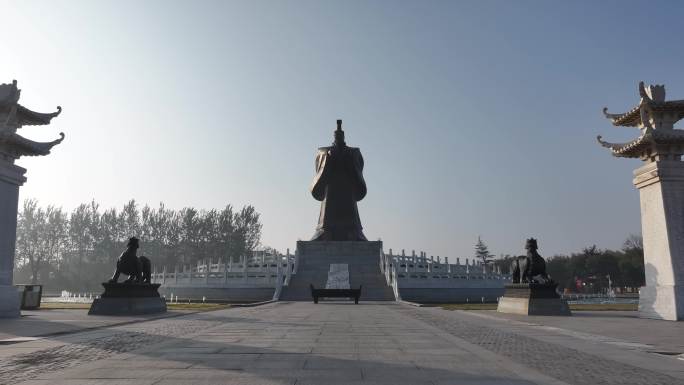
Bozhou Gujinggong Jiu Niangzao Yizhi.
By Train
Bozhou is well-connected by rail, making it easy to reach by train from various parts of China. The Bozhou Railway Station serves as the primary station, with fast trains available from major cities such as Shanghai, Nanjing, and Hefei. Upon arrival at Bozhou Railway Station, you can take a taxi to the Gujinggong Jiu Niangzao Yizhi, which is about 15 kilometers away.
Bus Services
If you prefer to travel by bus, there are several long-distance bus services that operate to and from Bozhou. The Bozhou Long-Distance Bus Station has routes connecting it to cities like Hefei, Nanjing, and Zhengzhou. Once in Bozhou, local buses or taxis can take you directly to the heritage site.
Local Transportation
Within Bozhou, taxis are readily available and offer a convenient option for reaching the Gujinggong Jiu Niangzao Yizhi. The fare from downtown Bozhou to the site is generally quite affordable. For a more immersive experience, consider renting a bicycle or an electric scooter to explore the area at your leisure.
Navigating to the Site
Once you arrive in Bozhou, getting to the Gujinggong Jiu Niangzao Yizhi is straightforward. The site is located within the Gujinggong Wine Cultural Park, which is well-signposted. Many locals are familiar with the site, so don’t hesitate to ask for directions if needed.
Accessibility
The site is designed to be accessible for all visitors. If you have mobility concerns, inform your transportation service in advance to arrange for appropriate vehicles.
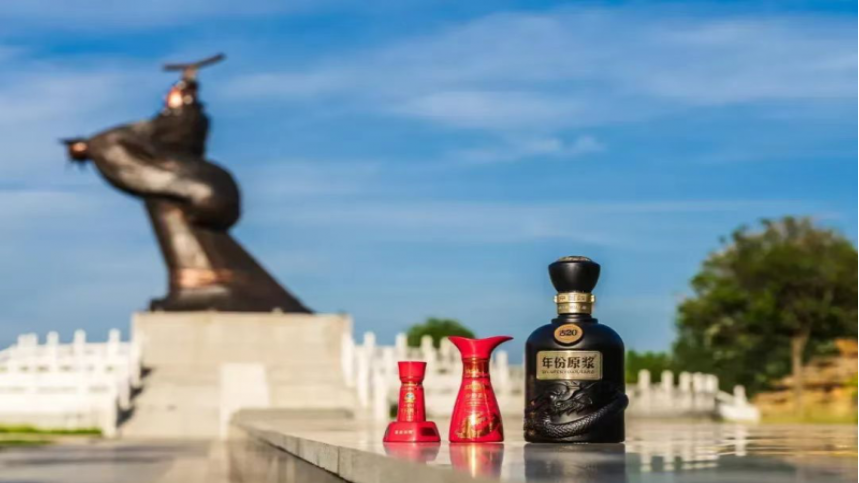
Bozhou Gujinggong Jiu Niangzao Yizhi.
Conclusion
Whether you choose to fly, take a train, or travel by bus, reaching the Gujinggong Jiu Niangzao Yizhi is easy and convenient. With its rich history and cultural significance, your journey to this remarkable site will be well worth the effort. Enjoy your visit!
Local Cuisine and Accommodation
When visiting the historic Gujinggong Jiu Niangzao Yizhi in Bozhou, you’ll find plenty of culinary delights and comfortable accommodations to enhance your experience.
Culinary Delights
Bozhou, known for its rich culture and history, offers a variety of local dishes that reflect its heritage. Here are some must-try foods:
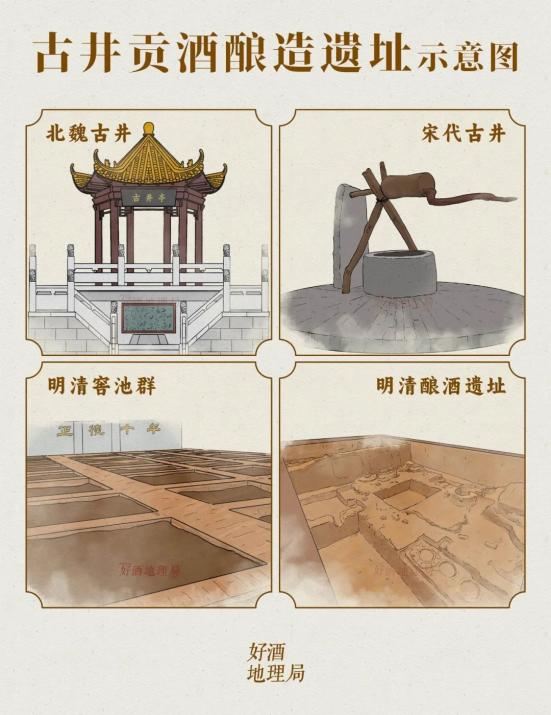
Bozhou Gujinggong Jiu Niangzao Yizhi.
-
Gujinggong Jiu (古井贡酒): No trip to the Gujinggong Jiu Niangzao Yizhi would be complete without sampling the famed Gujinggong liquor itself. This fragrant, strong liquor is celebrated for its smooth taste and is considered one of China’s eight famous liquors. Consider taking part in a tasting session at the Gujing Culture Museum, where you can learn about its history and production.
-
Dumplings (饺子): Bozhou is renowned for its delicious dumplings, which come with various fillings including pork, beef, and vegetables. These tasty treats are a staple in local cuisine and are often enjoyed with a spicy dipping sauce.
-
Stir-Fried Wheat Gluten (炒面筋): This dish is a local specialty that features chewy wheat gluten stir-fried with vegetables and spices. It’s a favorite among vegetarians and those looking for a unique taste of the region.
-
Braised Duck (红烧鸭): Known for its tender meat and rich flavors, braised duck is a popular choice in Bozhou. Many local restaurants offer this dish, often served with rice and seasonal vegetables.
-
Traditional Snacks: Don’t miss trying some of the local snacks such as Guo Bao (fried dough sticks), Tang Yuan (sweet rice balls), and various types of Bing (Chinese pancakes) available at street vendors throughout the city.
Accommodation Options
For a comfortable stay, there are several accommodations available near Gujinggong Jiu Niangzao Yizhi:
-
Gujing Hotel (古井宾馆): Located within the cultural complex itself, this hotel offers convenient access to the museum and the ancient brewing sites. It features comfortable rooms, modern amenities, and a restaurant that serves local cuisine.
-
Bozhou International Hotel (亳州国际大酒店): A short drive from the historical site, this hotel is known for its elegant rooms and comprehensive services. Guests can enjoy a fitness center, spa, and a variety of dining options, including both Chinese and Western cuisine.
-
Yijia Hotel (怡佳酒店): This budget-friendly option provides clean and cozy accommodations, making it ideal for travelers looking to explore the area without breaking the bank. It’s conveniently located near public transportation for easy access to local attractions.
-
Boutique Guesthouses: For a more intimate experience, consider one of Bozhou’s boutique guesthouses, which often reflect local architecture and design. Many offer home-cooked meals, personalized service, and a chance to connect with the local culture.
Whether you’re indulging in the local flavors or unwinding in comfortable lodgings, Bozhou promises an enriching experience steeped in history and tradition.
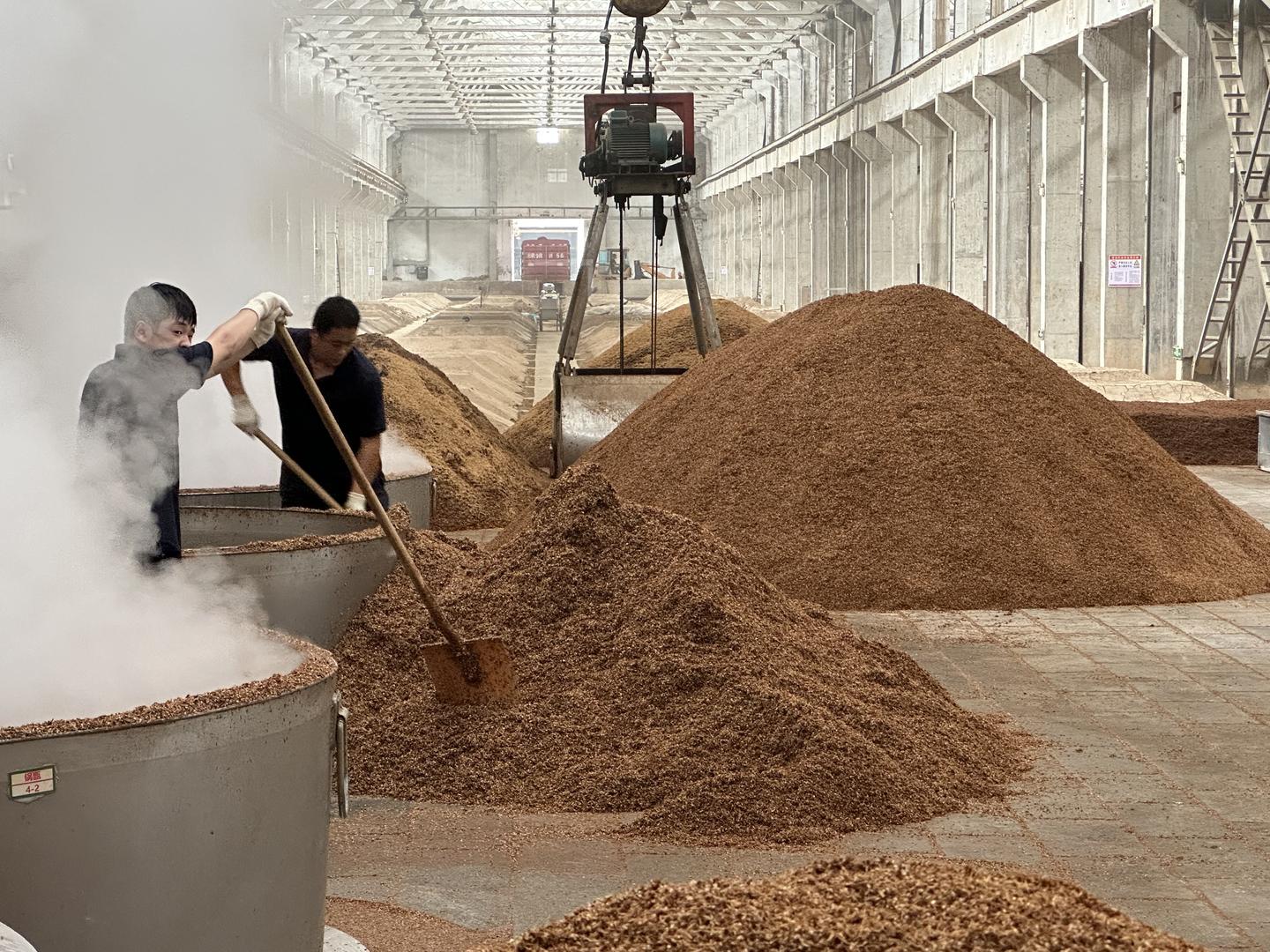
Bozhou Gujinggong Jiu Niangzao Yizhi.
Frequently Asked Questions
Frequently Asked Questions about Bozhou Gujinggong Jiu Niangzao Yizhi
-
What is the Bozhou Gujinggong Jiu Niangzao Yizhi?
The Bozhou Gujinggong Jiu Niangzao Yizhi, or the Ancient Gujing Wine Brewing Site, is a significant historical site located in Bozhou, China. It encompasses the remains of brewing facilities and ancient wells, showcasing the rich culture and traditional brewing methods of Gujinggong, one of China’s most famous liquors. -
When was the site established?
The site has its roots in ancient history, with brewing activities dating back to the Song Dynasty (960–1279 AD). The current archaeological site was officially recognized as a national key cultural relic protection unit in May 2013. -
What can visitors expect to see at the site?
Visitors can explore a variety of ancient brewing facilities, including Ming and Qing Dynasty fermentation pits, and two historic wells. The site features a comprehensive display of traditional brewing processes and artifacts, which help illustrate the historical significance of Gujinggong liquor and its production techniques. -
Is there an entrance fee to visit the site?
Yes, there is an entrance fee of 60 RMB per person. Discounts are available for children between 1.2 and 1.5 meters in height, while entry is free for children under 1.2 meters and seniors over 65 years with valid identification. -
What are the opening hours of the site?
The Bozhou Gujinggong Jiu Niangzao Yizhi is open daily from 8:00 AM to 5:00 PM. It is advisable to check for any special holiday hours before planning your visit. -
How can I get to the site?
The site is located in Bozhou, Anhui Province. Visitors can reach it by public transport or by car. For those traveling from other cities, Bozhou is accessible by train and bus services. -
Are there guided tours available?
Yes, guided tours are available and highly recommended to enhance your understanding of the historical and cultural significance of the brewing site. These tours often include detailed explanations of the brewing process and the importance of Gujinggong liquor in Chinese history. -
What other attractions are nearby?
The Bozhou area is rich in cultural heritage, with several nearby attractions including the Gujing Wine Culture Museum, ancient temples, and local markets. Visitors can easily explore multiple sites in a single day to fully experience the cultural offerings of the region.
Final Thoughts on Your Trip
Visiting the Bozhou Gujinggong Jiu Niangzao Yizhi is not merely an exploration of a historical site; it is an immersive journey into the heart of Chinese culture and craftsmanship. This remarkable heritage site, which showcases the traditional brewing techniques of the renowned Gujinggong liquor, offers a unique opportunity to witness the artistry and dedication that have defined centuries of winemaking. As you walk through the ancient distilleries and marvel at the craftsmanship behind each fermentation pit, you’ll gain a deeper appreciation for the rich history and cultural significance of this cherished beverage.
The site stands as a testament to the resilience and innovation of the generations that have come before, embodying the spirit of perseverance and excellence. For those who indulge in the exquisite flavors of Gujinggong liquor, the experience transcends mere taste; it becomes a celebration of heritage, community, and the art of brewing. As you depart, take with you the stories of the past and the promise of the future that this remarkable site encapsulates. Whether you’re a history enthusiast, a connoisseur of fine spirits, or simply a curious traveler, the Gujinggong Jiu Niangzao Yizhi invites you to partake in a legacy that continues to thrive.
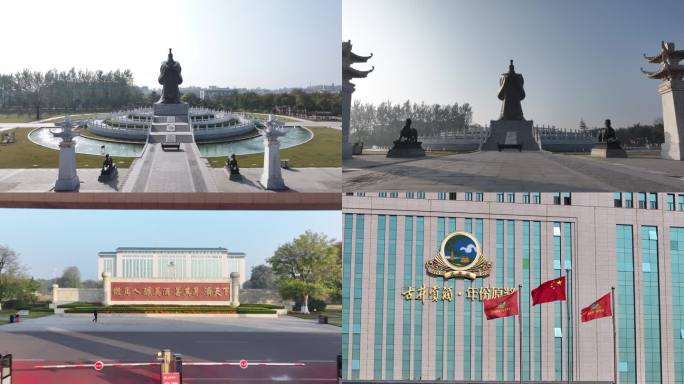
Bozhou Gujinggong Jiu Niangzao Yizhi.
